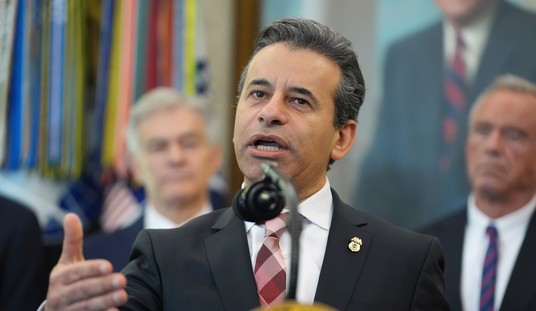Lebanon’s parliament voted Thursday to elect Gen. Joseph Aoun, commander of the Lebanese Armed Forces, as the country’s new president.
Aoun (no relation to former president Michel Aoun) will take on the role of president in a badly divided, economically crippled nation with the specter of Hezbollah looming over the people and government.
Lebanon's unique powersharing arrangement finds Aoun, a Maronite Christian, as president with a Sunni Muslim, Najib Mikati, as prime minister, and Shiite Nabih Berri as speaker of the parliament. This confessional system of government has never worked very well since its creation in 1943.
The Israeli military may have severely weakened the Hezbollah terrorists, but they're still a power in the country. Their outreach to the poor in the Shiite community and their still formidable militia make them a significant player in the political life of Lebanon.
But Hezbollah's status in the country has fallen considerably. With the death of their charismatic leader, Hassan Nasrallah, the militia is now led by Nasrallah's long-time deputy Naim Qassem.
Qassem had been active in Hezbollah since its founding in 1981 and in 1992 became deputy commander. He was passed over once before when Abbas al-Musaw, the first Hezbollah secretary-general, was assassinated, and the Shura Council elevated Nasrallah.
“Ultimately, he’s one of the last standing figures of the political and religious leadership cadre that was eligible to be elected secretary-general,” said Nicholas Blanford, a nonresident senior fellow with the Atlantic Council. “I’m not surprised at all. It was a clear-cut decision.”
Aoun's challenge is to manage his relationship with Qassem and keep Hezbollah from interfering in domestic politics. That's a tall order, as Hezbollah has its hands in the pockets of many companies in Lebanon.
“Joseph Aoun will be able to implement the ceasefire agreement and UN Resolution 1701, two important steps toward building a state that will gain the trust of the international community,” said Najat Aoun Saliba, an independent member of parliament. The fragile ceasefire deal between Israel and Hezbollah is still holding, although both sides accuse the other of violating it.
As far as UN Security Council Resolution 1701, Aoun has already put Hezbollah on notice. The Resolution calls for all armed groups in Lebanon to be disarmed. Hezbollah has ignored that resolution since its passage in 2006. There have been several UN resolutions ordering Hezbollah to disarm since the end of the Lebanese civil war in 1990.
In his inaugural speech before Parliament, Aoun indicated that he was going to try to implement 1701.
The Lebanese army did not participate in the all-out war with Israel but is a key player in the implementation of the ceasefire agreement.
“The Lebanese state – I repeat the Lebanese state – will get rid of the Israeli occupation,” Aoun said his speech. The new president also raised the specter of a Lebanese “defensive strategy” against Israel – officially classified as an enemy state – without Hezbollah. The armed group was long considered the de facto military force tasked with fighting Israel.
“My era will include the discussion of our defensive strategy to enable the Lebanese state to get rid of the Israeli occupation and to retaliate against its aggression,” said Aoun.
The U.S. has bankrolled the Lebanese military to the tune of $3 billion over the last five years. It's little more than a token force thanks to Hezbollah's interference.
But Aoun's primary challenge will be in trying to drag Lebanon out of its five-year economic crisis. It defaulted on more than $30 billion of Eurobonds, its currency, the Lebanese pound, has lost 90% of its value since 2020, and its citizens are fleeing in droves. Saudi Arabia, Lebanon's traditional banker, wants to see real progress toward political stability before investing the huge amounts that will be necessary for Lebanon to right the ship.
While Aoun’s election is seen by international investors and donors as a positive step, Lebanese lawmakers have in the past repeatedly failed to implement reforms demanded by the IMF to unlock billions of dollars in aid. These include repealing the banking secrecy law and implementing a comprehensive audit of the financial system.
“It all boils down to political willingness on the part of the political elites,” said Sumru Altug, an associate fellow at the Beirut-based Issam Fares Institute for Public Policy and International Affairs.
“Do they think they can muddle along for a few more years after electing a president, or are they ready to implement financial sector reform, own up to the losses in the banking sector, and agree to dismantle the cartels that allow them access to all aspects of the Lebanese economy?" asks Sumru Altug, an associate fellow at the Issam Fares Institute for Public Policy and International Affairs.
Lebanese politicians are typical of politicians who preside over a failed state. With corruption everywhere, the only thing that makes sense is taking as much as possible as quickly as you can before the whole rickety structure collapses in a heap.
Aoun is going to need more than luck to succeed. He's going to need a genuine miracle.










